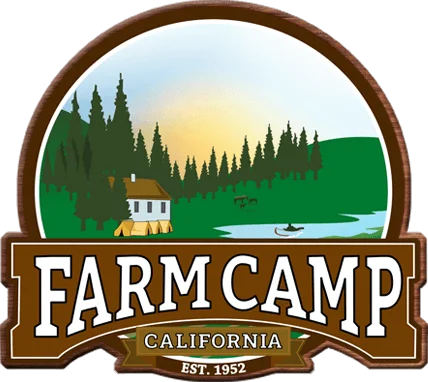Nervcited! Starting the Camp Countdown Chat with Your Camper
If your child is attending camp for the first time they might be starting to feel butterflies in their tummy. What is it going to be like? Am I going to make friends? What if it’s scary? Will my counselors help me?
These are all completely understandable questions and we’d be surprised if your camper didn’t feel a little nervous for the experience. Simply by coming to camp your child is stepping out of their comfort zone and taking what feels like a risk. They don’t know what the outcome will be and therefore it feels new, exciting and possibly scary too.
However, we know that children who step out of their comfort zones and engage in healthy risks build greater resilience, confidence, decision-making skills and are more tolerant to stressful situations in the future (1).
As an article from the American Camp Association states, “Resilience is the answer to the doubts we have as parents. Won’t he miss me? What if she gets sick? Homesickness, bug bites, disappointments, and injuries all can be weathered without mom or dad. As the camp doctor at a fantastic overnight camp, I can tell you that kids do look for a parent in those moments. And then they surprise themselves as they turn to counselors, new friends, and their own inner strength to get through and get over the hardships. What pride and self-confidence they discover as they learn of their own resilience” (2). While we know that the outcomes can be great, the process isn’t always easy.
In order to best set new campers up for success it’s important to be open with them about what they may face in this very new environment. Yes, they will have a really great time and sometimes they might really miss home while they’re doing it. And yes, they will make friends, and they might occasionally have a disagreement/differing opinion with one of their unit mates. It’s okay to have these conflicting experiences at once – they are in a safe place to process it. Just because you have difficult moments or feelings that you don’t enjoy, doesn’t mean that the whole experience is bad or that you’re not brave enough to be there!
While at camp, your camper is surrounded by adults who genuinely care about them. Our staff have been trained in how to help when a camper feels homesick or is having conflict with another camper. They also make sure to celebrate the moments, big or small, when your camper has learned something new, gone on their first big hike, or gotten on stage to perform in the drama. If your camper is ever experiencing feelings that are difficult to process, we have a team of directors who will stay with your camper for as long as it takes to work through those emotions. Then we’ll make a plan on how to move forward. We’re always here and ready to help whenever your camper needs it.
We’ve found that campers who have talked through their anxieties, goals and hopes for camp before arriving are often better at processing those tough emotions independently when they arise. Reminding your camper that they’re brave even when they miss home, and that they’re strong enough to keep going is awesome. Similarly, a reminder that their counselors and the leadership team are here to support them whenever they need it is great too. Below we’ve listed some questions that might help start the conversation!
- What are you MOST excited for?
- What are you most nervous about?
- What do you think it’ll be like living in a cabin for a week or two (or four)?
- I know we’ll miss each other while you’re gone but I know you’re going to have so much fun. You’re brave and strong and we know that you can do it. What are some things that might help if you get a little sad while you’re there?
- Are you interested in making new friends? What are some ways you could do that?
- What would you do if there was someone who you don’t get along with?
- On the first night of camp there will be a campfire in your unit where everyone gets to talk about how to live together. Do you have any ideas on what rules you think might be helpful?
- Is there anything you want to be sure your counselor(s) know about you?
- Are there any new things you want to try? New food, skills, etc.
- What’s one thing you want to make sure to accomplish before you go home?
- Make sure you tell your counselor when you get there so that they can help you with that goal!
This is just a jumping off point as you and your camper consider what their camp experience might be like. Campers may have times where camp is a huge challenge for them, but often those are the moments where they’re growing the most. Ultimately, we hope that “learning respect, resilience, and responsibility at camp will establish each (camper) as a person who can achieve his or her dreams” (2). We’re proud of you and your camper for taking this leap and trying something new! We can’t wait to see you this summer!
- “Bright Horizons | Risk Taking in Early Childhood: When Is It Appropriate? | Bright Horizons?” Brighthorizons.com, Bright Horizons, 2024, www.brighthorizons.com/article/children/risk-taking-benefits-children.
- Gilboa, Deborah. “Imagine Respect, Inspire Resilience, Impact Responsibility.” American Camp Association, 29 Sept. 2015, www.acacamps.org/article/camping-magazine/imagine-respect-inspire-resilience-impact-responsibility.
















